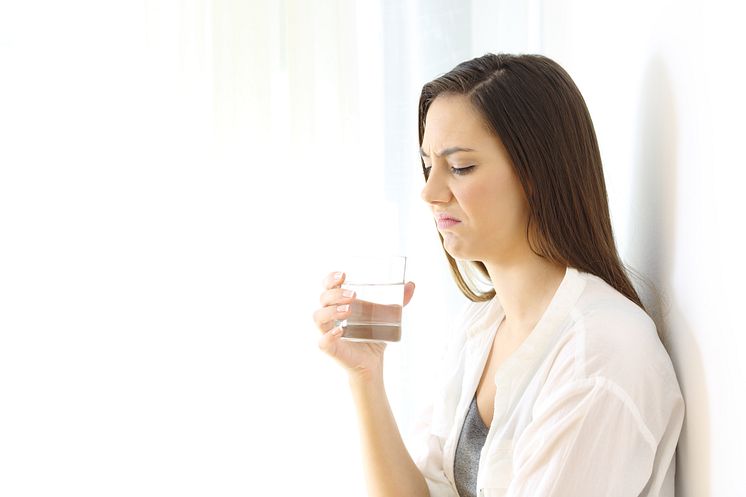
Almost half of Brits worry their drinking water is contaminated
Cardiff, Wales, May 31, 2018 – One-in-two Britons (49.2%) worry their tap drinking water contains contaminants like lead, bacteria, carcinogens, and micro-plastic particles, according to a new survey* from Bluewater, a global leader in water purification solutions. In addition, over 47 percent of respondents said they actively take measures to help control what’s in their drinking water, such as buying bottled water or using filtering systems.
“Research shows municipal water supply can contain contaminants such as lead, pharmaceutical residues or micro-plastics. Our survey carried out in May this year shows Britons are aware of this and seek alternatives such as bottled water, but actually the solution is wrong,” said Anders Jacobson, President of Bluewater.
Noting the Bluewater survey found 57 percent of Brits rely on bottled water in some capacity, with almost one-in-five (16.5 percent) drinking over three bottles per week, Jacobson added that “we’ve created a vicious cycle where the use of single-use plastic bottles of water has been normalized for much of our water intake, creating a massive waste stream that further pollutes water supply.”
The use and transportation of the huge quantities of single-use plastic bottles in circulation is poses a growing threat to human and planetary health. A study** has concluded just nine percent of the world’s plastic waste is recycled, and a study from Orb Media found that 93 percent of U.S. tap water contains plastic strands, or micro-plastic.**** A second Orb Media study in March this year also discovered plastic particles in 90 percent of bottled water, which has spurred a WHO health review.****
“The question today is just what water can people trust to drink if both municipal tap water and bottled water contain micro-plastic particles,” said Anders Jacobson.
Sian Sutherland, co-founder of A Plastic Planet, a non-profit organisation focused on ‘turning off the plastic tap’, said: “It’s forecast that we will be producing half a trillion plastic bottles a year by 2030. Where is all that indestructible plastic going to go? Like most true innovators, Bluewater have gone to the source of the problem to develop extraordinary purifying systems that allow us to enjoy extremely pure water without the guilt of polluting the planet with plastic bottles.”
Additional findings from the Bluewater survey show:
- 16 percent of Britons worry about plastic particles in their drinking water; that’s around 10.5 million people
- 21.1 percent worry about bacteria, 12.3% worry about lead or other toxic metals and 9.9% worry about pharmaceutical residue getting into their drinking water
- One in six (14.7%) Britons say they personally have or know someone who has had a water issue in the last two years
In October 2017, Bluewater created the Bluewater Clean Water movement and is working to bring greater awareness about water pollution by single-use plastics to the forefront around the world. And in March, 2018, Bluewater launched a global innovation Urban Drinking Water Scarcity Challenge to address urban drinking water scarcity challenges. Worth USD1 million in deployment awards and potential follow-on investment, the award is open to entrepreneurs promising solutions related to Alternative Supply, Distributed Access and Delivery, and Ecosystem Health.
Editors notes
Anders Jacobson announced the results of the Bluewater survey in Cardiff, Wales, during the visit in May and June 2018 of the Volvo Ocean Race, which Bluewater has partnered with as the Races’ global Official Water Supplier and Sustainability Partner.
*Survey methodology: One-time survey fielded to the general population in the United Kingdom on May 3, 2018 through May 5, 2018 via Google Consumer Surveys publisher network on behalf of Bluewater, receiving at least 1,201 responses.
**Environmental Working Group, https://www.ewg.org/videos/ewgs-tap-water-database-what-s-your-drinking-water#.WjFd5FWnGM8
*** Geyer, an associate professor at UCSB’s Bren School of Environmental Sciences & Management
Science Advances, Roland Geyer of the University of California, Santa Barbara
****Geyer, R., Jambeck, J. and Lavender Law, K. (2017). Production, use, and fate of all plastics ever made. Retrieved from http://advances.sciencemag.org/content/3/7/e1700782; Morrison, D. and Tyree, C. (2017). Invisibles; The Plastics Inside Us. Retrieved from https://orbmedia.org/stories/Invisibles_plastics
*****https://orbmedia.org/blog/water-tap-bottled-microplastics
For more information, contact David Noble, Bluewater PR & Communications Director, on +44 7785 302 694 or david.noble@bluewatergroup.com
#NoSingleUsePlastics